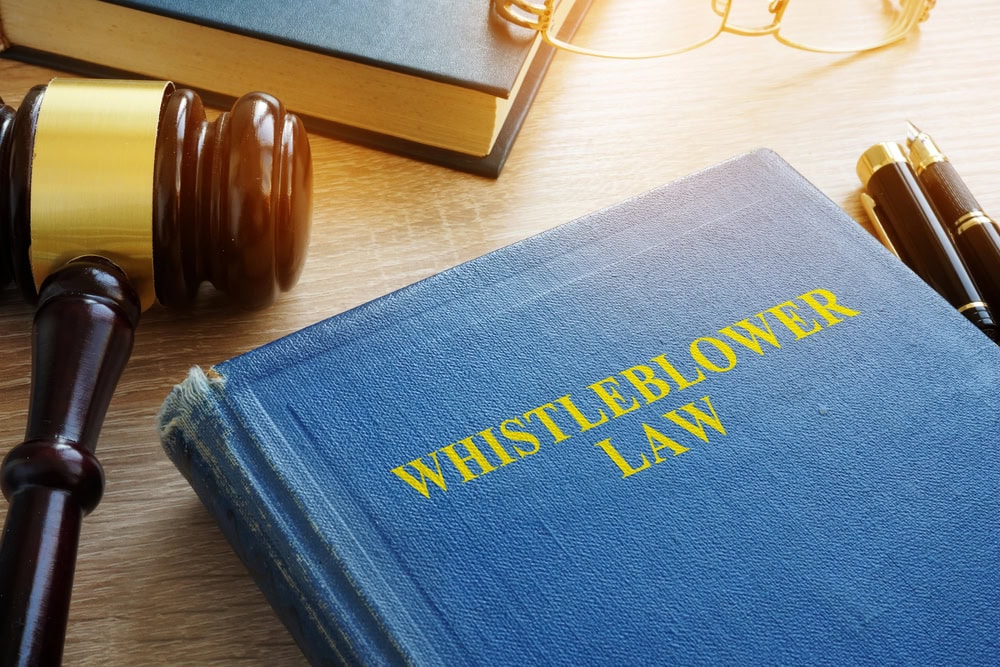Whistleblower Lawyers
Charlotte | Huntersville | Hickory
Protecting Employees from Whistleblower Retaliation
Navigate Your Options with a Legal Professional
The leaders of businesses, organizations, and agencies have many responsibilities on their plates. From treating their employees well to increasing profits, much is demanded of them. One of the most basic requirements of leadership in such institutions, however, is to act in an ethical and legal manner. If they fail in this endeavor, whistleblowers who witness improper acts oftentimes report issues in the hope of ending the inappropriate deeds. If you’ve done this and been punished by your employer for doing so, you may have a variety of legal options available. A whistleblower lawyer in North Carolina can help you understand these options.

At Harman Law, we respect the fortitude and commitment to ethics that are required to report improper acts. The potential consequences are often severe. After all, no one engaged in illegal or immoral behaviors wants to be exposed to the light. Fortunately, there are various whistleblower laws that can protect you. Maybe you’re considering reporting something but are unsure if legal protections apply in your situation, or perhaps you’ve already made a report and have faced retaliation for doing so. Regardless of your specific situation, a confidential consultation with a North Carolina whistleblower attorney at Harman Law can help.
What Is a Whistleblower?
A whistleblower is an individual who has reported wrongdoing they’ve observed in their workplace. The term brings visions to mind of workers reporting improper actions to the federal government, and this would certainly qualify as such. However, a whistleblower may also simply report things they’ve witnessed to their superiors. Of course, you can imagine that some organizational leaders would not take kindly to their employees exposing inappropriate behaviors occurring under their watch. In some instances, it’s the leaders themselves engaged in the wrongful acts.
When a whistleblower reports what they’ve seen, it’s typically because they want change to occur. In situations where illegal conduct is transpiring, they may also want to see responsible parties held accountable. Regardless of their underlying motivations, whistleblowers often risk disciplinary action by coming forward. This is why it’s so important for these individuals to have protections. If bad actors could simply retaliate against good Samaritans with impunity, it’s likely that many instances of illegal and unethical behavior would go unnoticed, unreported, and unpunished.
Are There Laws Protecting Whistleblowers?
If you’re worried about reporting certain activities you’ve witnessed in the workplace, the North Carolina whistleblower attorneys at Harman Law are here to ease your mind. There are actually a variety of statutes — both state and federal laws — meant to protect whistleblowers from retaliation after reporting their employer’s conduct. The Federal False Claims Act — which was passed in the wake of significant fraud following the Civil War — is one such statute. The Dodd-Frank Act — passed much more recently in 2010 — is another. The Consumer Protection Act and Whistleblower Protection Act contain similar provisions.
While each of these laws focuses on different situations, they all have the intended purpose of protecting whistleblowers from retaliation. This protection applies to employees of small businesses all the way up to government entities. If a business owner or other culpable party engages in punitive measures against reporting parties, these laws ensure that they’re held accountable for their retaliatory actions in addition to their initial unethical acts. Such violations can become very costly. Of course, it’s important to note that only certain reported activities qualify for whistleblower protections. These are discussed below.
What Whistleblower Acts Are Protected by Law?
Not all whistleblower reports are protected activity. Reporting unethical actions is always an admirable act, but only reports regarding certain misconduct qualify for protection under state and federal law. Of course, there are some gray areas where it may not be clear if a report qualifies for protection. There are many reasons for this, but it’s mainly due to the variety of different statutes that provide such protections. In nearly all instances, though, the law is on your side when you report the following types of illegal conduct:
- Employment discrimination, sexual harassment, or other violations under the Equal Employment Opportunity Commission
- Fraudulent or illegal activity regarding workers' compensation claims
- Work safety issues that violate the Occupational Safety and Health Act (OSHA)
- Violations of wage and hours regulations — including failure to offer overtime pay — under state and federal law
- Defrauding the government as prohibited by the False Claims Act (FCA)
- Qualifying environmental hazards such as unlawful water and air pollution
If you have reported any of these activities and faced retaliation, it’s time to speak with a whistleblower attorney in North Carolina. It’s also wise to seek out legal advice if you’re considering reporting such misconduct. While whistleblower laws clearly provide protections for those who report improper actions, there are nuances to these statutes that are imperative for you to understand. The employment lawyers at Harman Law have extensive experience in whistleblower claims, so don’t hesitate to reach out to us today.
What Are Monetary Awards Under the Federal False Claims Act?
The Federal False Claims Act is one of the most significant pieces of whistleblower legislation in history. That’s because it does more than just protect individuals who report illegal conduct; it also rewards them for doing so. The law essentially allows anyone to file a lawsuit on behalf of the federal government when fraud has occurred against the government. When the statute was passed, it effectively created an incentive for others to protect federal agencies from fraudulent activities.
The incentive for filing whistleblower claims is — of course — money. Successful claims result in rewards of up to 30% of what the government is able to recover. For instance, imagine that you witness wrongful acts that defraud the government of $5 million. Under federal law, you’d be able to take up to $1.5 million as a reward for your efforts. The Dodd-Frank Act provides similar rewards for reporting
These rewards are in addition to the other protections provided by whistleblower laws in America. For instance, you can receive back wages, benefits, interest on lost income, additional liquidated damages, and other compensatory damages if your employer retaliates against you for reporting behaviors or filing a claim. Such retaliation can include anything from terminating you to giving you an undesirable schedule. Whistleblower cases can be complex, though, so having the help of a North Carolina whistleblower attorney is never a bad idea.
Contact a Whistleblower Lawyer in North Carolina Today
There are a variety of laws that protect whistleblowers from retaliatory responses. In fact, there are even statutes that provide significant rewards for those who report fraudulent behavior. Of course, it’s not just reports of fraud against the federal government that qualify as protected activity. Reporting any number of improper activities provides immediate protections against retaliation. This is true within both public and private organizations. If you think you’ve been punished for doing the right thing or you’re unsure of how to report illegal activities, a North Carolina employment law firm may be able to help.
At Harman Law, we’ve spent years helping North Carolina residents who have been wrongfully treated in their workplace. If you have reported inappropriate actions or are thinking of doing so, you may be worried about your job and future prospects. This is a common and completely natural feeling, and that’s exactly why you should reach out to our whistleblower lawyers in North Carolina for assistance. Contact us today by calling (704) 286-0947 to schedule a confidential consultation. Whether you’ve suffered retaliation or simply want to better understand the whistleblower claims process, we’re here to help.


